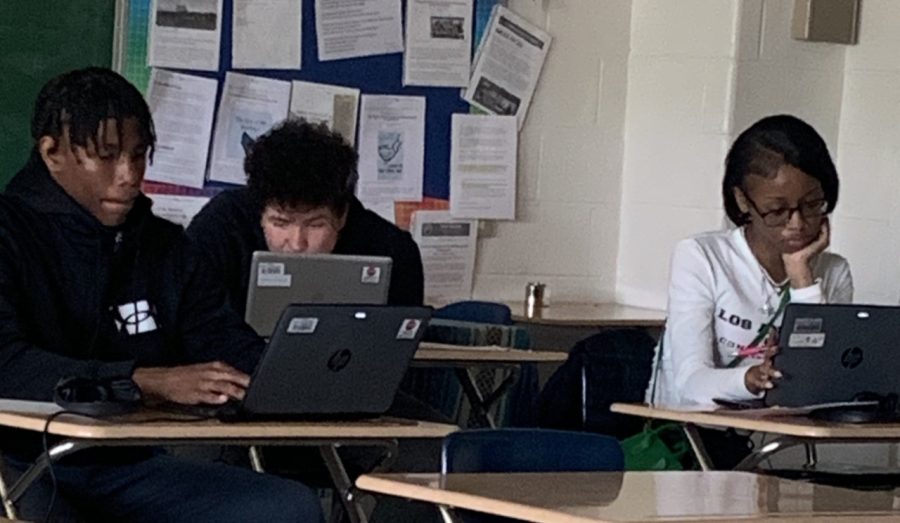Growing Dependency on Technology
Students often access their day to day lessons through educational technology rather than the old tradition of paper and pencils.
April 28, 2023
Since its rise in the 90s with entrepreneurs like Jeff Bezos with Apple and Bill Gates with Microsoft, technology has revolutionized the twentieth century in a way that made communication easier, provided more jobs for people, and changed the educational system forever.
When the covid pandemic struck in 2020, technology grew even more as students and teachers stayed on Zoom and completed their work in Google Classrooms and platforms like BCPS’ Schoology. As the covid disease rampaged the world in an unprecedented way that created loss and isolation, it the revamped our dependency of technology in the world.
On March 16th, 2020, the world was shut down with the announcement “coronavirus shuts down school” according to CNN. Since that moment the world transitioned to the digital world to get their job and assignment done as the world turned into a silent and isolated place for people.
This changed student learning according to Kenwood freshmen Gabby Flores who thinks, “ It impacted our ethics and focus.” Gabby’s not the only one to feel this way as prior to 2020 students had never been in a place where they were isolated from their peers and completely dependent on technology to stay connected with their peers and teachers.
Students now recall the dependency on technology that was virtual learning as a time to lay in their beds on their computers to get their work done. That might seem ideal but many look back and see how unmotivating it was. “I think students got really tired of the monotony that takes place with being strictly dependent on computers to learn,” shared English teacher Ms. Glenn. “I know I did as there wasn’t a whole lot of ways to vary your lesson day to day.”
But now we’re back to face to face learning yet many have noticed now that we’ve all figured out how to use technology more to learn and stay connected, it’s so much a part of our day to day in school now, more than before the pandemic. Both students and staff feel differently about the growing dependency and use of technology in the classroom.
Kenwood Math teacher Mr. Kern feels, “Students are more distracted while learning by searching other tabs”. His fellow Math teacher Mr. Keener agrees that we shouldn’t discount the benefits of still working with paper. “It is scientifically proven that written things on paper helps students learn and understand things more,” he adds.
Kenwood junior Autumn Rohe wishes classes did more work on paper and not so much on the computer. “Technology was good to get work done during virtual lessons, but it has been proven to be unhealthy to be on a device so much. Lessons should be mixed between paper and device,” she suggests.
Students who take notes are often more academically successful. So, this raises the question of should the world go back to its roots of pen and paper or continue onward with the new evolution of technology?
Sometimes we don’t realize how dependent we’ve become on something until it’s no longer reliable. As was shown on April 17 and 18th when Schoology, the educational platform BCPS uses, was down for a day and a half of classes. It left many students and teachers scrambling to change lesson plans. “My teachers had to quickly find paperwork for us to do as their lessons are always saved on schoology,” shared student Sam T.
Though our dependency on technology in education continues to grow, it seems both students and teachers feel it’s important to keep a balance between technology and non technology in the structure of classroom lessons.
